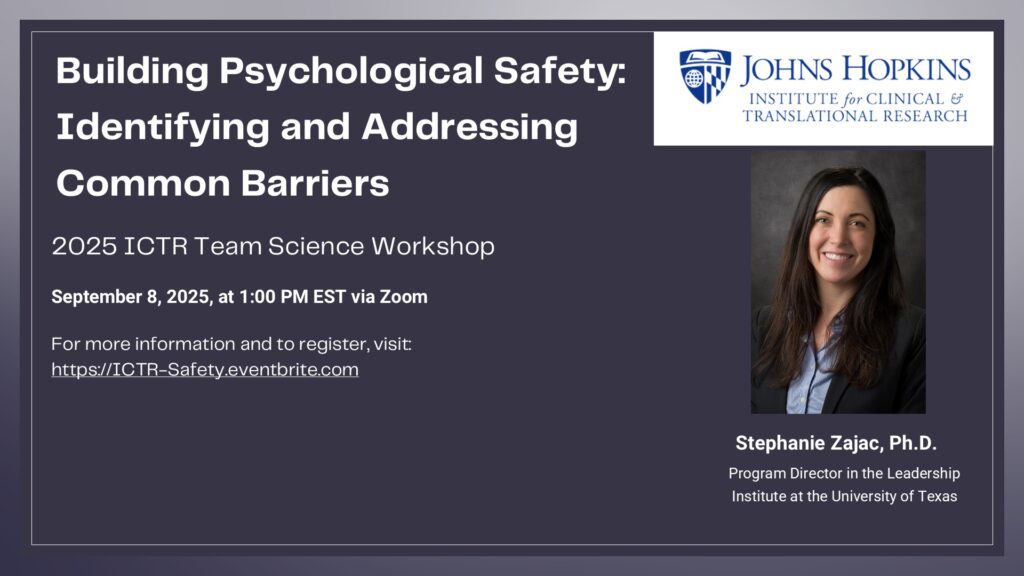
Building Psychological Safety: Identifying and Addressing Common Barriers
Learn how to identify & overcome common barriers to psychological safety using evidence-based strategies for stronger, more effective teams
Presentation
Overview
Psychological safety is foundational to effective teamwork, collaboration, and innovation. This session examines common barriers to psychological safety and equips leaders and teams with evidence-based strategies and actionable tools to overcome them.
Objectives
The specific objectives of this workshop are to:
- Define psychological safety and explain its importance for learning, collaboration, and performance.
- Understand individual, team, and organizational factors that can either support or undermine psychological safety.
- Identify evidence-based strategies to address and reduce barriers to psychological safety that you can use in your own team or organization.
Target Audience
This workshop is appropriate for any Johns Hopkins or ICTR partner researcher interested in improving their ability to lead or work within interdisciplinary research teams effectively. Interdisciplinary research teams can look like many things. It might be cross-school collaborations (e.g., Medicine, Public Health, Nursing, Engineering, Arts & Sciences, Education, or Business), collaborations across different department or fields of study, or collaborations with different types of organizations and institutions (e.g., community-academic partnerships). Whether you are starting a new team or seeking to enhance the effectiveness of your current team, this workshop will provide you with insights and tools to apply in your work.
Speaker Bio
Stephanie Zajac, Ph.D., is a Program Director in the Leadership Institute at the University of Texas MD Anderson Cancer Center. She holds a doctorate in Industrial-Organizational Psychology from Rice University and is an Associate Certified Coach (ACC) through the International Coach Federation.
Stephanie brings over a decade of experience in healthcare and other high-reliability sectors, including aerospace, the military, and energy. At MD Anderson, she leads initiatives focused on team development and change management, with an emphasis on evidence-based practices. Her work has been published in journals such as Joint Commission Journal on Quality and Patient Safety, Journal of Interprofessional Care, and the Journal of the American Medical Association.
Learn More
To learn more about ICTR Team Science, visit https://ictr.johnshopkins.edu/community-engagement/team-science/.

